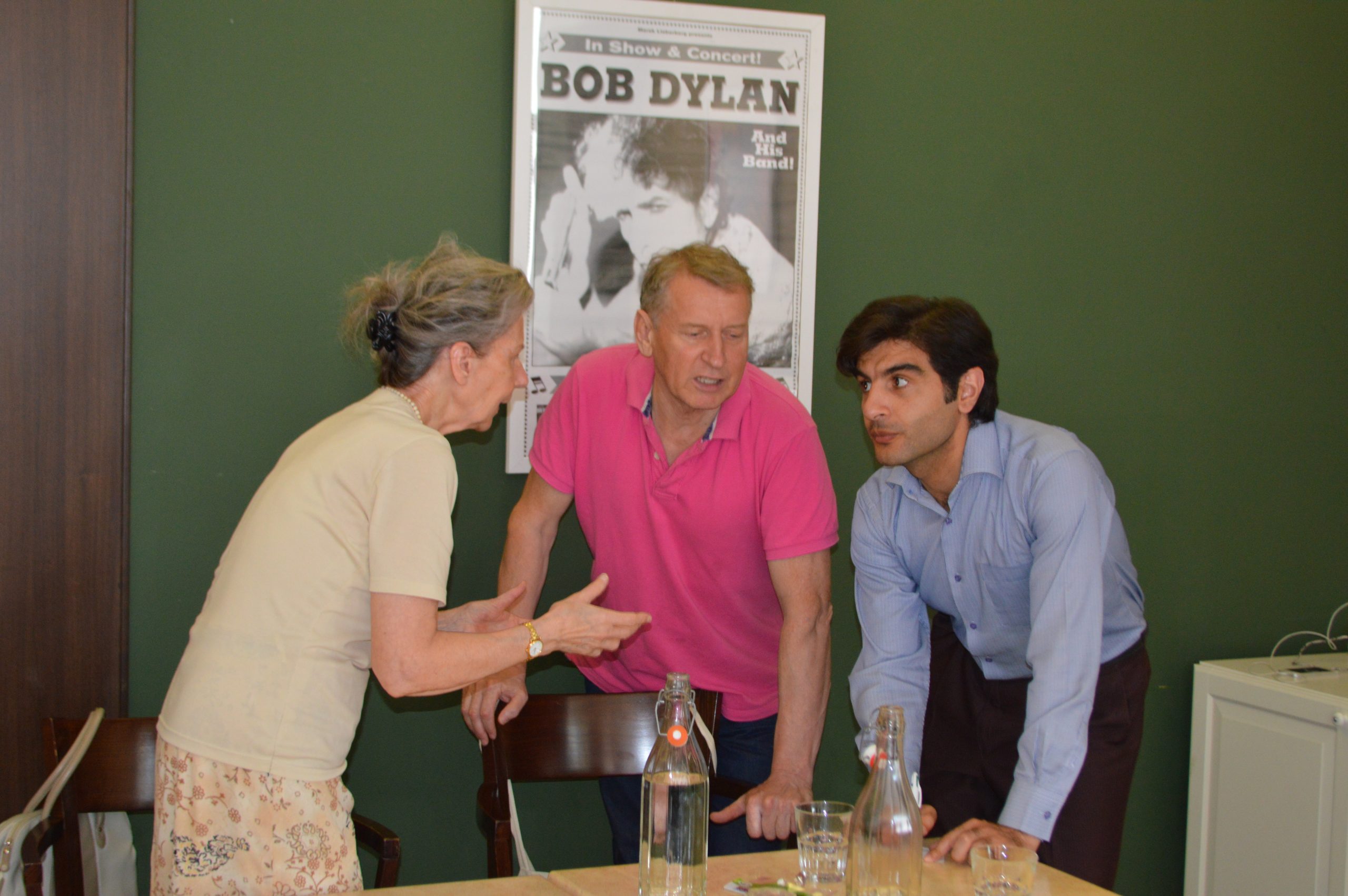Contents
Introduction

Logotherapy: Techniques, Applications, and Effectiveness
Logotherapy is a form of psychotherapy focused on helping individuals find meaning in their lives. It is based on the idea that discovering and understanding one’s purpose is crucial for psychological well-being. This approach uses various techniques to address existential questions and challenges, aiming to promote personal growth and resilience. The therapy is applied to various mental health issues and is evaluated for its effectiveness in improving life satisfaction and emotional health.
This article offers an overview of Logotherapy, outlining its core principles, key techniques, and how it is applied to address various psychological conditions. We will also explore the criticisms and limitations of Logotherapy, as well as its relevance and effectiveness as a therapeutic approach.
What is Logotherapy?
Logotherapy is a form of existential psychotherapy developed by Viktor Frankl that focuses on finding meaning in life, even amidst suffering. The core belief of Logotherapy is that the primary human drive is not pleasure, as suggested by Freudian psychoanalysis, but rather the pursuit of what we find meaningful. By helping clients discover or rediscover a sense of purpose, Logotherapy aims to improve psychological well-being and foster resilience.
Unlike other forms of therapy that focus on the past or unconscious mind, Logotherapy centers on the present and future, aiming to uncover life’s purpose and significance. It utilizes several techniques to facilitate this discovery, including Socratic dialogue, reflection, and paradoxical intention.
Why Logotherapy is Important?
Logotherapy is important because it provides a unique framework for addressing existential concerns and questions of purpose that many individuals face. It recognizes that even when life is painful or circumstances are beyond one’s control, there is an opportunity for growth and personal development through finding meaning. This approach helps individuals to reframe their perspectives, encouraging them to find deeper value in life and their experiences.
By focusing on meaning, Logotherapy empowers clients to view their lives from a broader perspective, promoting resilience and psychological well-being. It is particularly valuable for individuals grappling with existential crises, loss, or major life changes, helping them to build a more meaningful and fulfilling life.
Understanding How Logotherapy Works
Logotherapy works by guiding clients through a process of meaning discovery and validation. Therapists using this approach employ techniques like Socratic dialogue to explore clients’ values, beliefs, and sources of meaning. Another technique, deflection, involves shifting the client’s focus away from obsessive or self-centered thoughts toward broader life goals or values. Paradoxical intention is used to help clients confront and, paradoxically, reduce the intensity of their fears.
Our approach to understanding Logotherapy will be divided into stages: an initial look at its core principles, a detailed examination of its therapeutic techniques, and a final assessment of its success in helping individuals find meaning and cope with difficulties.
Simple Overview
Core Idea Logotherapy is centered on the belief that the primary motivation in life is to find meaning. The therapy helps individuals discover meaning through values, creativity, or attitudes toward unavoidable suffering. It encourages clients to look beyond themselves and their immediate troubles to uncover deeper significance in their lives. Logotherapy emphasizes the future and the individual’s ability to create meaning in their life. The therapy encourages individuals to discover meaning through three principal avenues:
- Creative Values: Engaging in activities such as work, hobbies, or artistic expression that provide a deeper sense of purpose and fulfillment. These activities allow individuals to express themselves, feel productive, and contribute meaningfully to the world. By creating something valuable or beautiful, people feel connected to a larger purpose. This connection enhances their sense of identity and personal significance.
- Experiential Values: Finding meaning through rich, authentic experiences like deep relationships, love, or the appreciation of beauty in life. Engaging fully in these experiences allows people to connect deeply with others and with the world around them. Such connections foster a sense of belonging, fulfillment, and purpose.
- Attitudinal Values: Developing a positive mindset in the face of suffering, recognizing that while pain is often unavoidable, one’s response is a personal choice. This value emphasizes resilience, courage, and the capacity to find meaning even in difficult circumstances. It involves reframing suffering as a chance for growth, strength, and understanding.
Real-Life Example: A client struggling with feelings of hopelessness after losing a loved one might use Logotherapy to find a renewed sense of purpose. Through exploring their values, relationships, and potential legacies, they may identify ways to honor their loss and find new meaning in their ongoing life.
Critical Concepts
- Meaning of Life: Logotherapy posits that everyone has a unique purpose, and discovering this purpose can lead to profound fulfillment, even in the face of suffering. Finding personal meaning in life’s challenges is essential for psychological well-being. By uncovering this meaning, individuals can experience a deeper sense of satisfaction and purpose.
- Freedom of Will: This concept highlights that individuals can choose their attitudes and responses to any situation. This freedom enables them to shape their life’s direction and find meaning, independent of external circumstances. The ability to choose one’s response is crucial for finding purpose and maintaining a sense of control. This freedom empowers individuals to direct their lives meaningfully.
- Will to Meaning: Logotherapy asserts that the fundamental human drive is the search for meaning, rather than the pursuit of pleasure or power. This intrinsic motivation shapes behavior and provides a sense of purpose and direction. Finding meaning in life’s experiences is essential for psychological fulfillment. The will to meaning guides individuals toward a purposeful existence.
- Existential Vacuum: An existential vacuum refers to a state of emptiness and lack of purpose that can lead to distress, anxiety, or depression. It often occurs when individuals struggle to find meaning or purpose in their lives. This feeling of emptiness underscores the importance of discovering personal significance. Addressing the existential vacuum is key to achieving psychological well-being.
Detailed Assessment
Logotherapy incorporates existential, cognitive, and behavioral elements to provide a holistic framework for psychological well-being.
- Existential Foundations: Logotherapy is based on existential philosophy, emphasizing the search for meaning as a central human drive. It encourages clients to explore existential questions and find purpose in life. This approach helps individuals find significance even in suffering, fostering a deeper sense of fulfillment. By addressing life’s inherent challenges, clients can discover meaning in all aspects of existence.
- Cognitive Reframing: Logotherapy uses cognitive reframing to alter clients’ perspectives on life’s challenges. It encourages viewing difficulties as opportunities for growth rather than obstacles. This shift in mindset helps individuals find meaning and value in their struggles, promoting a more positive outlook. Reframing transforms negative experiences into opportunities for personal development.
- Behavioral Techniques: Logotherapy employs techniques like paradoxical intention and deflection to address maladaptive behaviors. Paradoxical intention encourages clients to face their fears, reducing their power. Reflection helps clients focus away from anxieties and towards meaningful goals. These techniques aid in overcoming limitations and redirecting energy towards purposeful actions.
- Stages of Meaning Fulfillment: In Logotherapy, clients move through stages of meaning fulfillment. They start by recognizing an existential vacuum, then discover personal meaning. The final stage involves taking purposeful actions to effect life changes. This process helps individuals achieve a deeper sense of purpose and improve their overall well-being.
Difference Between Logotherapy and Theory
| Aspect | Logotherapy Therapy | Logotherapy Theory |
| Definition | A therapeutic approach developed by Viktor Frankl that focuses on finding meaning in life as a way to overcome psychological distress. | A theoretical framework developed by Viktor Frankl that explores the role of meaning in human life and its impact on psychological well-being. |
| Focus | Practical application of techniques to help individuals discover and pursue meaning in their lives. | Conceptual exploration of the role of meaning in human existence and how it affects mental health. |
| Goals | To help individuals identify and pursue personal meaning, which can alleviate suffering and improve overall well-being. | To provide a theoretical understanding of how meaning influences human behavior, motivation, and psychological health. |
| Techniques | Techniques include existential analysis, helping clients find meaning through their experiences, and encouraging personal responsibility. | Concepts include the “will to meaning,” the search for meaning in life, and the importance of attitude toward suffering. |
| Practitioners | Therapists trained in Logotherapy techniques who work directly with clients to apply the principles of meaning and purpose. | Theorists and researchers who study and develop the principles of Logotherapy, often contributing to its theoretical foundations and applications. |
| Application | Used in therapeutic settings to address issues such as depression, anxiety, and existential crises by focusing on meaning. | Applied in academic and theoretical discussions to understand and explore how meaning influences human experience and behavior. |
| Examples | Frankl’s approach to helping patients in concentration camps find meaning in their suffering and life’s challenges. | Frankl’s theory of existential vacuum, the concept of self-transcendence, and the exploration of existential dilemmas. |
| Outcome | Clients often report increased sense of purpose and meaning in their lives, improved emotional resilience, and a greater ability to cope with suffering and challenges. | The theory provides a framework for understanding how meaning impacts human behavior and mental health, influencing therapeutic practices and existential exploration. |
Notable Figures in Logotherapy

- Viktor Frankl: Founder of Logotherapy and Holocaust survivor, Frankl developed this existential psychotherapy approach to help people find meaning even in suffering, drawing from his own experiences in concentration camps.
- Elizabeth Lukas: A prominent Logotherapist who expanded Frankl’s work by integrating Logotherapy into contemporary clinical practice, making it more accessible and applicable in modern mental health settings.
- Joseph Fabry: An influential advocate of Logotherapy, Fabry authored several works to popularize Frankl’s ideas, helping to spread awareness and understanding of the therapy’s concepts globally.
- Alexander Batthyány: A contemporary Logotherapist and scholar who focuses on the scientific study of meaning and consciousness, continuing to evolve Frankl’s work in academic and therapeutic settings.
Theories Influenced by Logotherapy
- Existential Therapy: Building on Logotherapy’s focus on meaning, existential therapy explores themes of existence, freedom, and choice. It emphasizes finding personal meaning in life’s challenges and understanding the impact of one’s choices.
- Humanistic Therapy: While Logotherapy is a distinct approach, its emphasis on human potential and the search for meaning complements humanistic psychology’s focus on personal growth, self-actualization, and individual values.
- Cognitive-Behavioral Therapy (CBT): Although different in methodology, CBT incorporates aspects of Logotherapy in its focus on cognitive reframing and addressing maladaptive thoughts. Logotherapy’s principles can enhance CBT by adding a layer of meaning and purpose to cognitive strategies.
- Mindfulness-Based Cognitive Therapy (MBCT): MBCT integrates cognitive processing techniques with mindfulness practices. Incorporating Logotherapy’s focus on meaning helps clients understand how their cognitive processing relates to their search for purpose and personal significance.
Applications of Logotherapy in Treating Mental Health Disorders

Depression
Logotherapy can help individuals with depression by guiding them to find new or renewed meaning in life. This sense of purpose can help alleviate symptoms of hopelessness and despair.
Example: A client who feels overwhelmed by depression and sees no purpose in life might be guided to reflect on a time when they felt fulfilled. Perhaps they recall enjoying teaching or mentoring others. Logotherapy would help them rekindle that passion by volunteering as a mentor, helping them to reconnect with a sense of purpose and reduce depressive symptoms.
Image Source: nhsinform.scot

Anxiety Disorders
Logotherapy can help individuals with anxiety disorders by providing a structured framework for understanding and reframing their fears and worries in the context of a broader life purpose.
Example: A client with generalized anxiety disorder who is constantly worried about their career might be guided to explore what truly matters to them. They may realize that their anxiety stems from a mismatch between their values (e.g., creativity, helping others) and their current job. Logotherapy would then help them consider career changes that align more closely with their values, thus reducing anxiety.
Image Source: buddyhelp.org

Grief and Loss
For those dealing with profound grief, Logotherapy can offer pathways to finding meaning after loss, helping them navigate their emotions and find ways to honor their loved ones.
Example: A person mourning the loss of a partner who was passionate about environmental conservation might find solace in starting a community garden or joining an environmental advocacy group. By aligning with the partner’s values, they find new meaning and purpose, which helps alleviate their grief.
Image Source: thebluetreeclinic.com

Addiction
Logotherapy can be an effective approach for individuals dealing with addiction by providing a meaningful alternative to substance use and addictive behaviors. It helps clients explore the underlying voids or unmet needs that led them to addiction, offering a path to fill these voids.
Example: A person recovering from alcohol addiction might realize through Logotherapy that their addiction stemmed from a lack of connection and purpose in their life. They could be encouraged to reconnect with family members or volunteer for a cause that resonates with them, filling the existential void with meaningful relationships and activities.
Image Source: iStock / sorbetto
Common Myths About Logotherapy
| Myth | Reality |
| Logotherapy is overly simplistic and lacks depth. | While centered on finding meaning, Logotherapy engages deeply with complex existential dilemmas, personal values, and the human condition. |
| It is only suitable for minor issues or mild cases. | Logotherapy has proven effective in addressing severe psychological issues, such as trauma, depression, and profound existential crises. |
| Logotherapy avoids addressing emotions directly. | Although it focuses on meaning, Logotherapy integrates emotional experiences, understanding how they relate to existential concerns. |
| It is only relevant for spiritual or religious individuals. | Logotherapy is a secular and flexible approach, applicable to anyone exploring life’s purpose, regardless of spiritual or religious beliefs. |
Criticisms and Limitations
- Potential Overemphasis on Meaning: Critics argue that Logotherapy’s strong focus on finding meaning in life may overlook other crucial psychological factors. This emphasis might not address immediate needs for symptom management or practical coping skills, which are better suited for approaches like Cognitive Behavioral Therapy (CBT).
- Abstract and Philosophical: The existential and philosophical nature of Logotherapy can feel too abstract for some clients, particularly those who prefer concrete strategies and actionable solutions. For them, therapeutic approaches that focus on specific behavioral changes, clear goals, or step-by-step strategies, like CBT or Solution-Focused Brief Therapy (SFBT), may be more suitable and easier to engage with.
- Dependent on Client Readiness: Logotherapy requires clients to engage deeply with existential questions about life’s purpose and meaning. Its effectiveness can depend on the client’s psychological readiness and willingness to explore such profound themes. Therefore, careful assessment of a client’s readiness and therapeutic needs is crucial when considering Logotherapy as a treatment option.
Conclusion
Logotherapy offers a distinctive approach to psychotherapy by emphasizing the search for meaning as a core human drive. By focusing on existential concerns, freedom of choice, and the pursuit of purposeful living, this approach can provide profound psychological benefits. Although it has limitations, particularly for those who need more concrete interventions, it remains a valuable and effective option for those seeking to navigate existential crises and enhance their psychological well-being.
References
- Frankl, V. E. (1959). Man’s search for meaning. Beacon Press.
- Frankl, V. E. (1988). The will to meaning: Foundations and applications of logotherapy. Plume.
- Frankl, V. E. (2006). On the theory and therapy of mental disorders: An introduction to logotherapy and existential analysis. Brunner-Routledge.
- Lukas, E. (1986). Meaning in suffering: Comfort in crisis through logotherapy. SPCK.
- Fabry, J. (1988). The pursuit of meaning: Viktor Frankl, logotherapy, and life. HarperCollins.
- Wong, P. T. P. (1998). Meaning-centered counseling and therapy: An integrative approach to psychological and existential distress. American Psychological Association.
- Yalom, I. D. (1980). Existential psychotherapy. Basic Books.
- Yalom, I. D. (2008). Staring at the sun: Overcoming the terror of death. Jossey-Bass.
- May, R. (1983). The discovery of being: Writings in existential psychology. Norton & Company.
- Rollo May, J. (1981). Freedom and destiny. Random House.
- Gadamer, H.-G. (2004). Truth and method (2nd ed.). Continuum.
- Jung, C. G. (1961). Memories, dreams, reflections. Vintage Books.
Explore more Theories & Therapies








